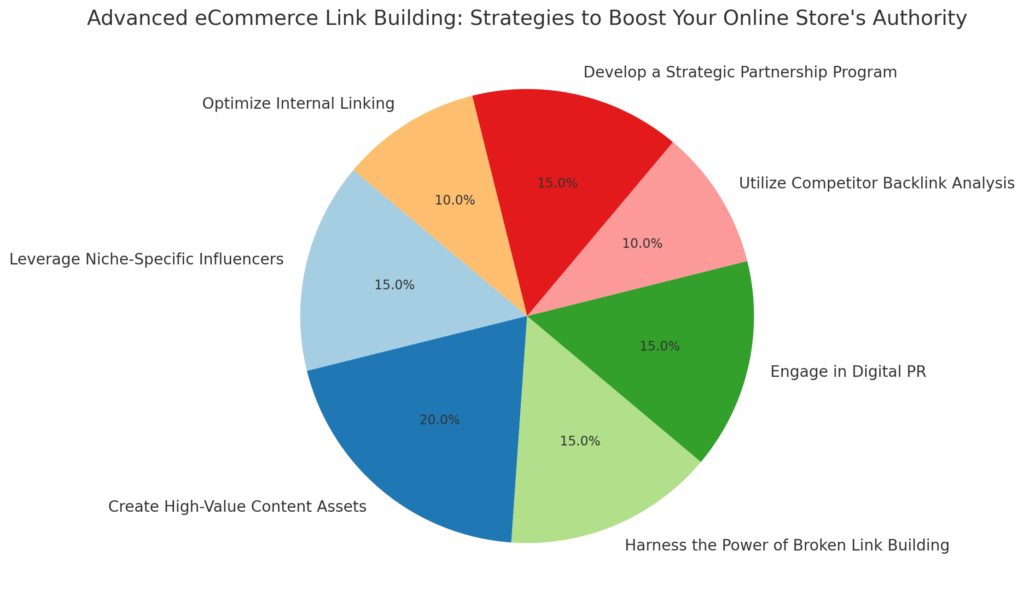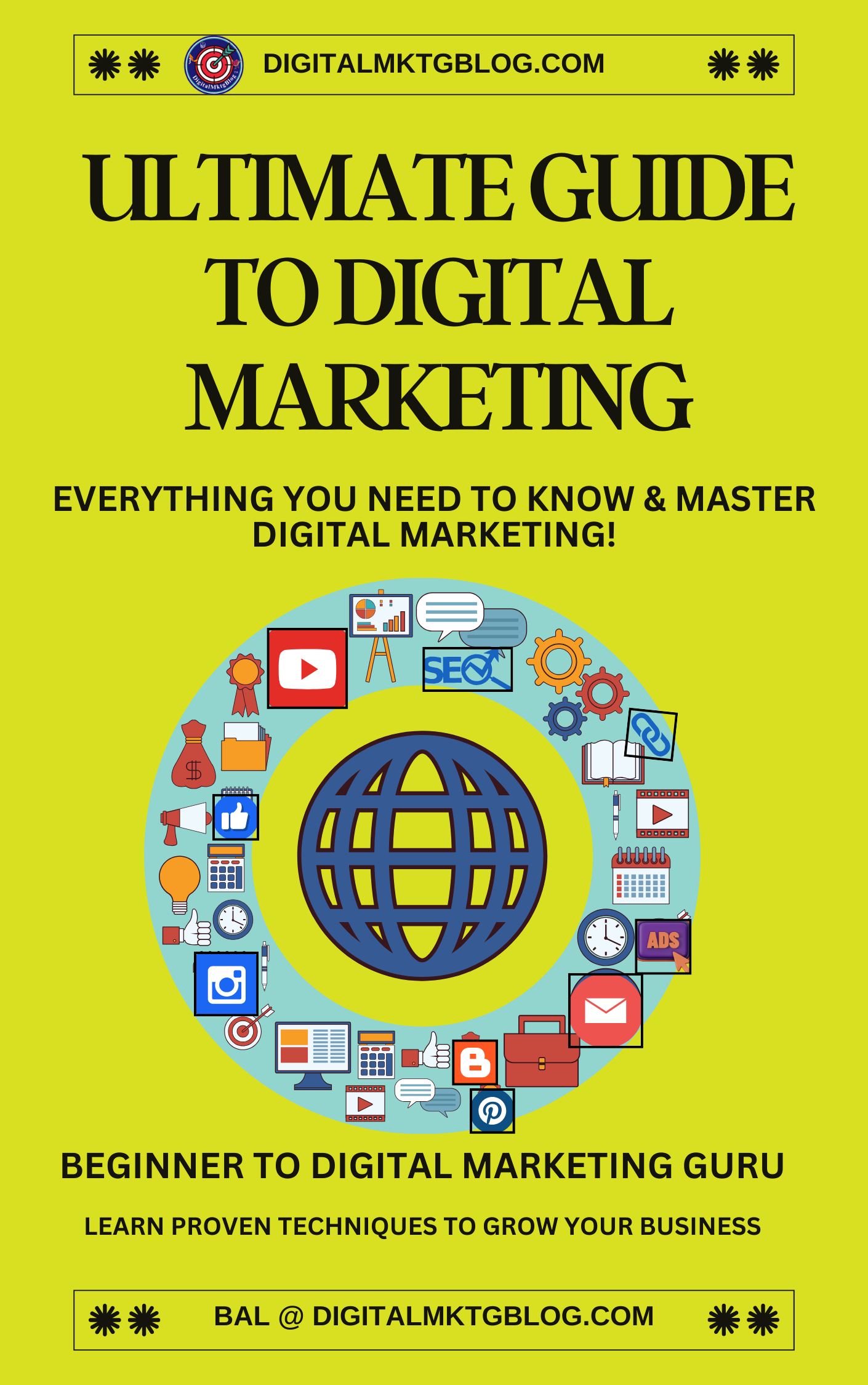Advanced eCommerce Link Building: Strategies to Boost Your Online Store’s Authority
In the competitive world of eCommerce, link building is often the secret sauce that can take your online store from obscurity to dominance. While basic link-building strategies might help you get started, advanced eCommerce link-building is where the real magic happens. This article dives deep into sophisticated techniques that can elevate your store’s search engine rankings, increase organic traffic, and drive more sales.
Understanding the Importance of Link Building in eCommerce
Before we dive into the advanced strategies, it’s crucial to understand why link building is so important for eCommerce websites. In simple terms, backlinks are votes of confidence from other websites. When a high-authority site links to your store, it signals to search engines that your content is valuable and trustworthy. This, in turn, can improve your rankings on search engine results pages (SERPs), leading to more visibility and traffic.
However, not all backlinks are created equal. For eCommerce sites, backlinks’ quality, relevance, and diversity are crucial. The ultimate goal is to build a strong backlink profile that improves rankings and drives targeted traffic to your store.
Advanced eCommerce Link Building Strategies
1. Leverage Niche-Specific Influencers

Influencer marketing is not just about social media promotions; it’s also a powerful link-building tool. Collaborating with niche-specific influencers can help you earn high-quality backlinks from blogs, review sites, and other online platforms that cater to your target audience.
Start by identifying influencers who are relevant to your niche and have a solid online presence. Offer them your products for review or collaborate on content that features your store. In return, you can request a link back to your site. Since these influencers have a loyal following, their endorsement can drive valuable traffic to your store while enhancing your backlink profile.
Pro Tip: Focus on micro-influencers who have smaller but highly engaged audiences. Their recommendations often carry more weight and authenticity.
2. Create High-Value Content Assets

Content is still king when it comes to link building. However, creating generic content won’t cut it. To attract high-quality backlinks, you need to develop content assets that provide real value to your audience and the broader online community.
Consider creating:
-
- Comprehensive Guides: In-depth guides on topics related to your products can serve as authoritative resources that other websites will want to link to.
- Infographics: Visual content like infographics is highly shareable and can attract backlinks from blogs and social media platforms.
- Original Research and Data: Conducting original research and presenting your findings can establish your store as a thought leader in your industry. Data-driven content is particularly attractive to other sites looking for credible sources to reference.
Once you’ve created these content assets, promote them aggressively through email outreach, social media, and content syndication platforms. The more visibility your content gets, the higher the chances of earning valuable backlinks.
3. Harness the Power of Broken Link Building
Broken link building is an advanced technique that involves finding broken links on other websites and offering your content as a replacement. This strategy helps the website owner by fixing a dead link and earns you a valuable backlink.
Here’s how you can implement this strategy:
- Identify Relevant Websites: Use tools like Ahrefs or SEMrush to find websites in your niche with broken links.
- Create or Identify Replacement Content: Ensure you have content that is a suitable replacement for the broken link.
- Reach Out: Contact the website owner or editor, inform them about the broken link, and suggest your content as a replacement.
Broken link building requires effort, but it’s an effective way to earn high-quality backlinks from authoritative sites in your industry.
4. Engage in Digital PR

Digital PR goes beyond traditional public relations by focusing on building online relationships with journalists, bloggers, and industry influencers. The goal is to get your brand featured in news articles, blogs, and other online publications, which can lead to valuable backlinks.
Here are some ways to leverage digital PR for link building:
-
- Press Releases: Craft compelling press releases about new product launches, company milestones, or other noteworthy events. Distribute these to relevant media outlets and online platforms.
- Newsjacking: Capitalize on trending news stories by offering expert commentary or insights that can be featured in news articles. This boosts your brand’s visibility and earns you backlinks from credible news sources.
- Collaborate on Expert Roundups: Participate in expert roundups or interviews on popular blogs and industry websites. These often include a link back to your store or blog.
Digital PR requires building relationships and staying on top of industry trends, but it can yield significant rewards in brand exposure and backlinks.
5. Utilize Competitor Backlink Analysis
Analyzing your competitors’ backlink profiles is a smart way to uncover link-building opportunities you might still need to look into. Tools like Ahrefs, Moz, and SEMrush allow you to see where your competitors are getting their backlinks from, and you can then target those same sources.
Steps to execute this strategy:
-
-
- Identify Top Competitors: Focus on competitors who rank higher than you for target keywords.
- Analyze Their Backlinks: Use backlink analysis tools to identify the websites linking to your competitors.
- Reach Out: Contact these websites and pitch your content or product as a valuable resource that deserves a backlink.
-
By leveraging competitor backlink analysis, you can tap into proven link-building opportunities and strengthen your backlink profile.
6. Develop a Strategic Partnership Program
Building strategic partnerships with complementary businesses can open up a world of link-building opportunities. For example, if you sell fitness apparel, you could partner with a health and wellness blog or a gym equipment retailer.
These partnerships can take various forms:
-
-
- Content Collaborations: Co-create blog posts, guides, or videos that both parties can share on their websites with reciprocal backlinks.
- Joint Promotions: Run joint promotions or giveaways that involve both brands, with each party linking to the other’s website.
- Affiliate Programs: Develop an affiliate program where partners promote your products in exchange for a commission. Their promotional content will naturally include backlinks to your store.
-
Strategic partnerships help you build links and expose your brand to new audiences and potential customers.
7. Optimize Internal Linking
While external backlinks are crucial, pay attention to the power of internal linking. Properly optimized internal links can help distribute link equity across your website, improve crawlability, and enhance user experience.
Here’s how to optimize your internal linking strategy:
-
- Use Descriptive Anchor Text: Ensure your internal links use keyword-rich anchor text that accurately describes the linked content.
- Link to High-Converting Pages: Prioritize linking to pages that drive conversions, such as product pages or special offers.
- Regularly Audit Your Links: Conduct regular audits to identify and fix broken internal links and update old content with new internal links where relevant.
By strategically optimizing your internal links, you can enhance the overall SEO health of your eCommerce site.
Conclusion

Advanced eCommerce link building is not just about acquiring as many links as possible; it’s about building high-quality, relevant backlinks that can drive traffic and authority to your online store. By leveraging influencers, creating valuable content assets, engaging in digital PR, and analyzing competitors, you can develop a robust backlink profile that sets your eCommerce business apart from the competition.
Remember, link-building is a long-term strategy. It requires persistence, creativity, and a willingness to adapt to the ever-changing SEO landscape. But with the right approach, the results can be transformative for your eCommerce store. Start implementing these advanced link-building strategies today and watch your online presence soar.





